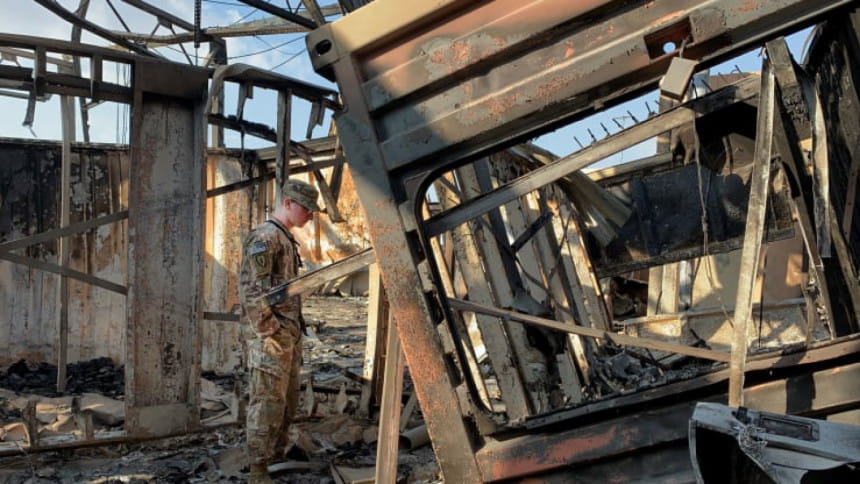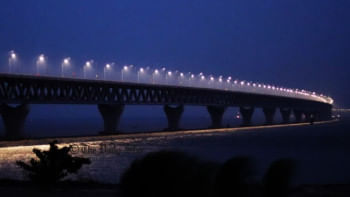2 US, one British personnel killed in Iraq rocket attack

One British and two American personnel were killed and about a dozen people were wounded when 18 small rockets hit Iraq's Taji military camp north of Baghdad on Wednesday, US officials told Reuters, speaking on condition of anonymity.
The officials, who cautioned the death toll may rise given the severity of some of the injuries, said it was too soon to assign blame. Any indication that Iran-backed militia were responsible could spark a new round of confrontation between the United States and Iran.
US Secretary of State Mike Pompeo spoke with British Foreign Secretary Dominic Raab and they "underscored that those responsible for the attacks must be held accountable," the State Department said.
The last military escalation led to a US strike in January that killed top Iranian General Qassem Soleimani, which, in turn, led Iran to fire missiles at a base in Iraq hosting US forces, leaving more than 100 troops with brain injuries.
Pompeo has argued the killing of Soleimani was necessary in part to deter Iran and Iran-backed groups from additional attacks.
The US-led military coalition in Iraq said in a statement that 18 107 mm Katyusha rockets struck the base and suggested they may have been fired from a truck.
It confirmed three personnel were killed and about a dozen wounded but declined to disclose the nationalities of the casualties or offer any other identifying information.
"The attack is under investigation by the Coalition and Iraqi Security Forces," the US-led coalition said.
The State Department readout of the call with Raab said that there had been American, British and other casualties in the attack, but it did not provide details.
British Prime Minister Boris Johnson issued a statement condemning the attack and added that Raab had spoken with Pompeo.
"We will continue to liaise with our international partners to fully understand the details of this abhorrent attack," Johnson said, without confirming British casualties.
War Powers Vote
In a sign of concern that tensions between the United States and Iran could be headed toward open conflict, the Democratic-led US House of Representatives passed legislation on Wednesday to limit President Donald Trump's ability to wage war against Iran.
The Republican president has been engaged in a maximum-pressure campaign of renewed sanctions and near-constant rhetorical conflict against Iran, after pulling the United States out of the international nuclear deal reached during the administration of his Democratic predecessor, Barack Obama.
Tensions between Washington and Tehran have mostly played out on Iraqi soil in recent months.
Iran-backed paramilitary groups have regularly been rocketing and shelling bases in Iraq that host US forces and the area around the US Embassy in Baghdad.
The Kataib Hezbollah militia was blamed for an attack on a base last year that killed an American contractor, which led to retaliatory US strikes against it in Iraq and Syria.

 For all latest news, follow The Daily Star's Google News channel.
For all latest news, follow The Daily Star's Google News channel. 



Comments